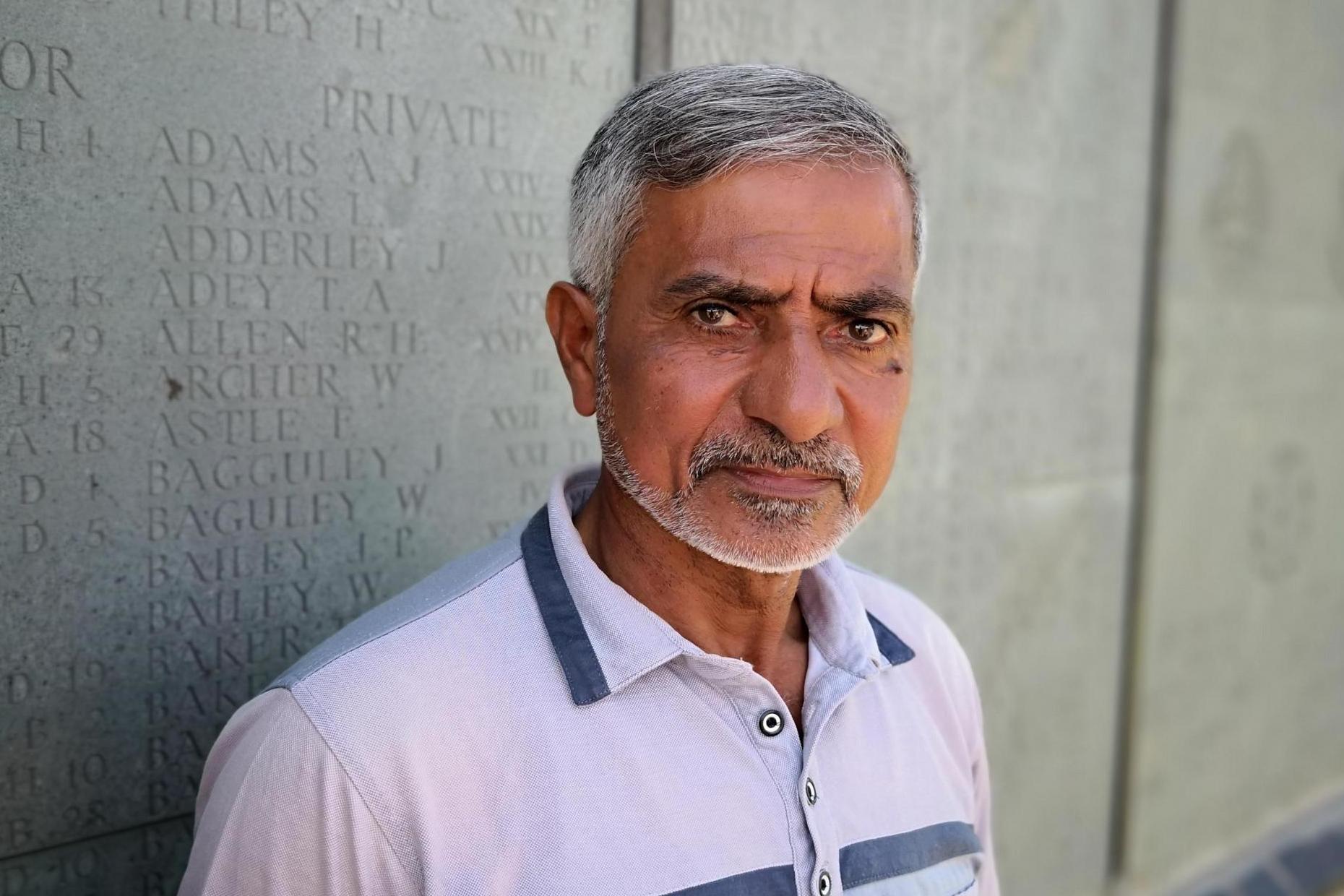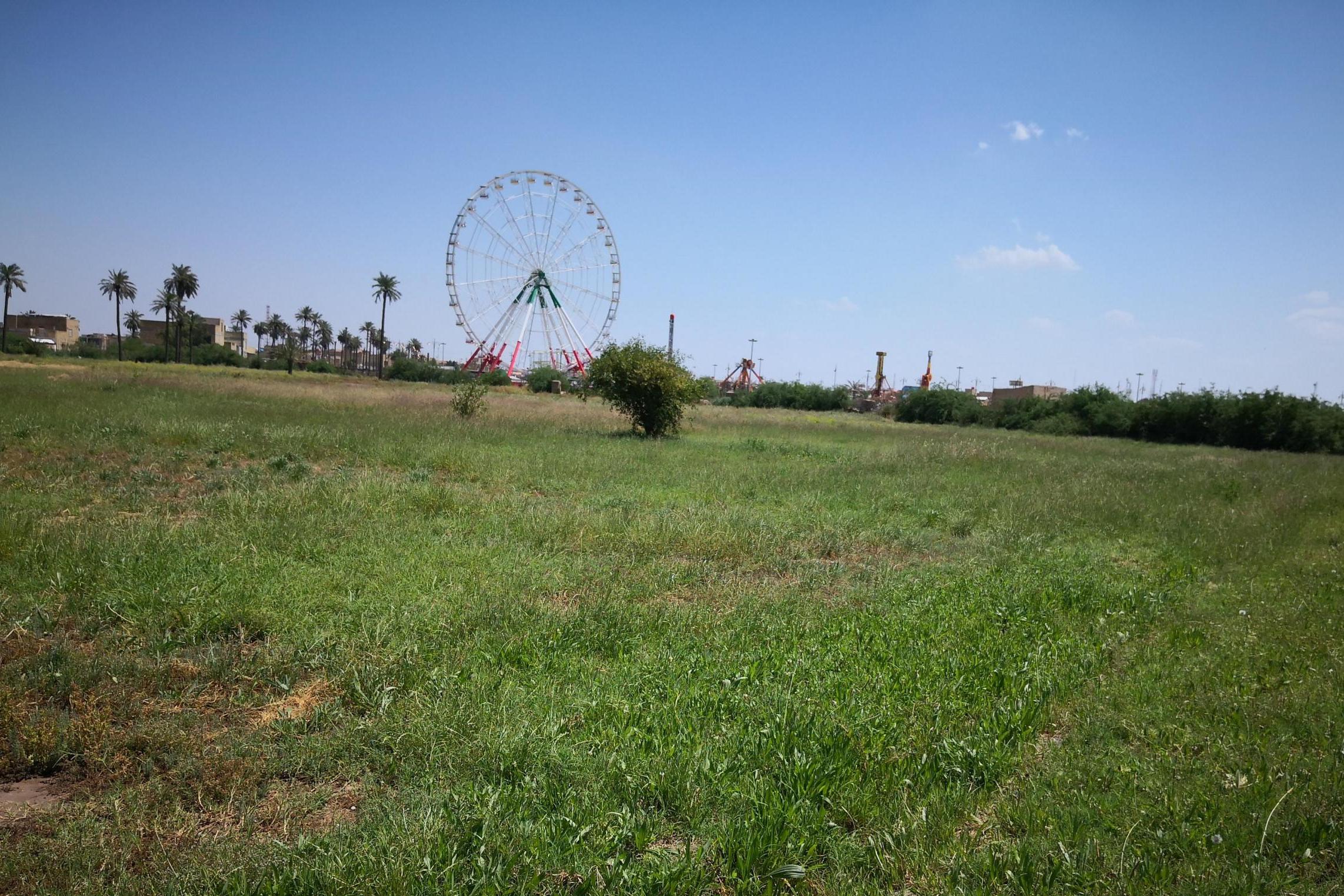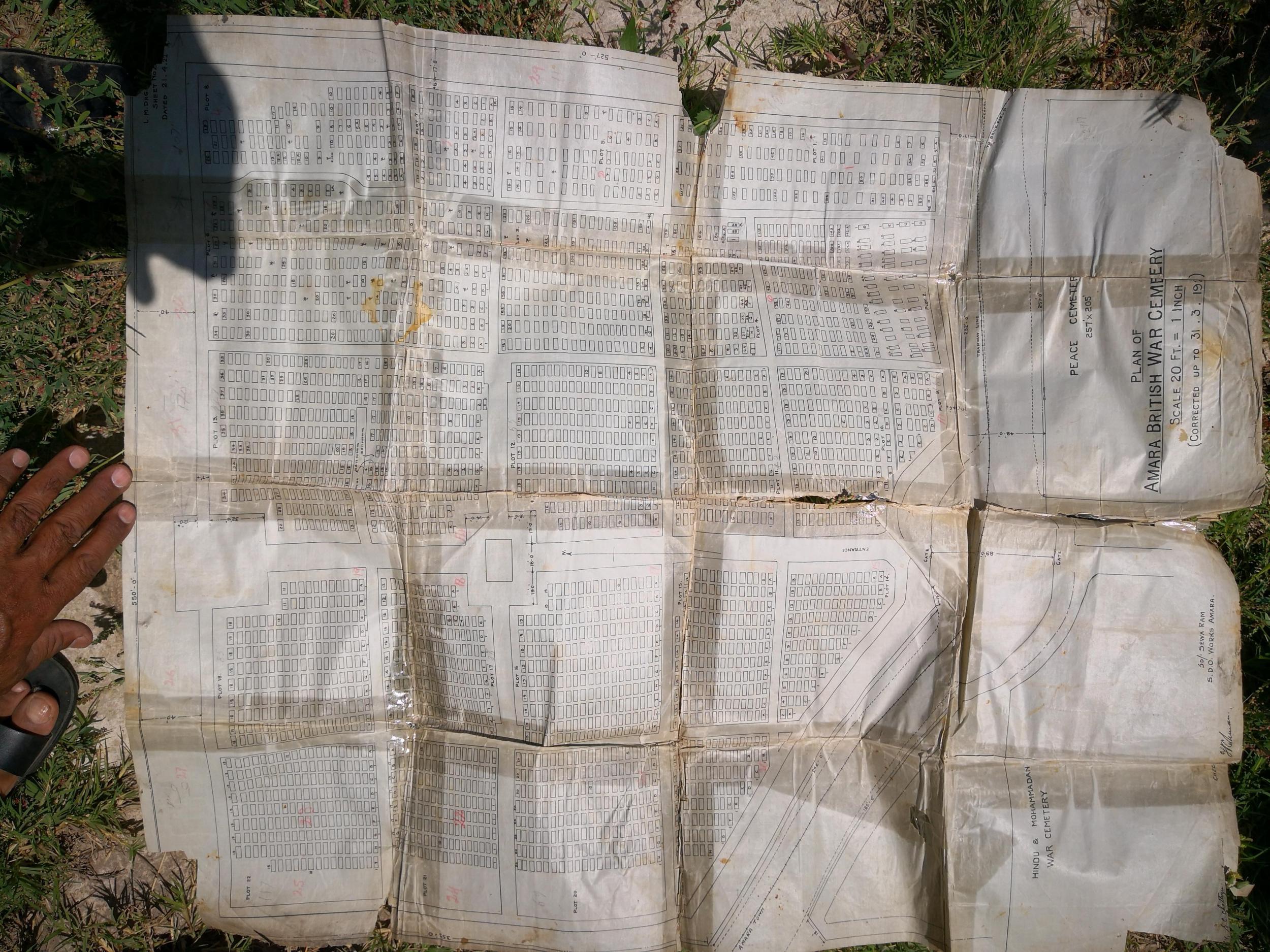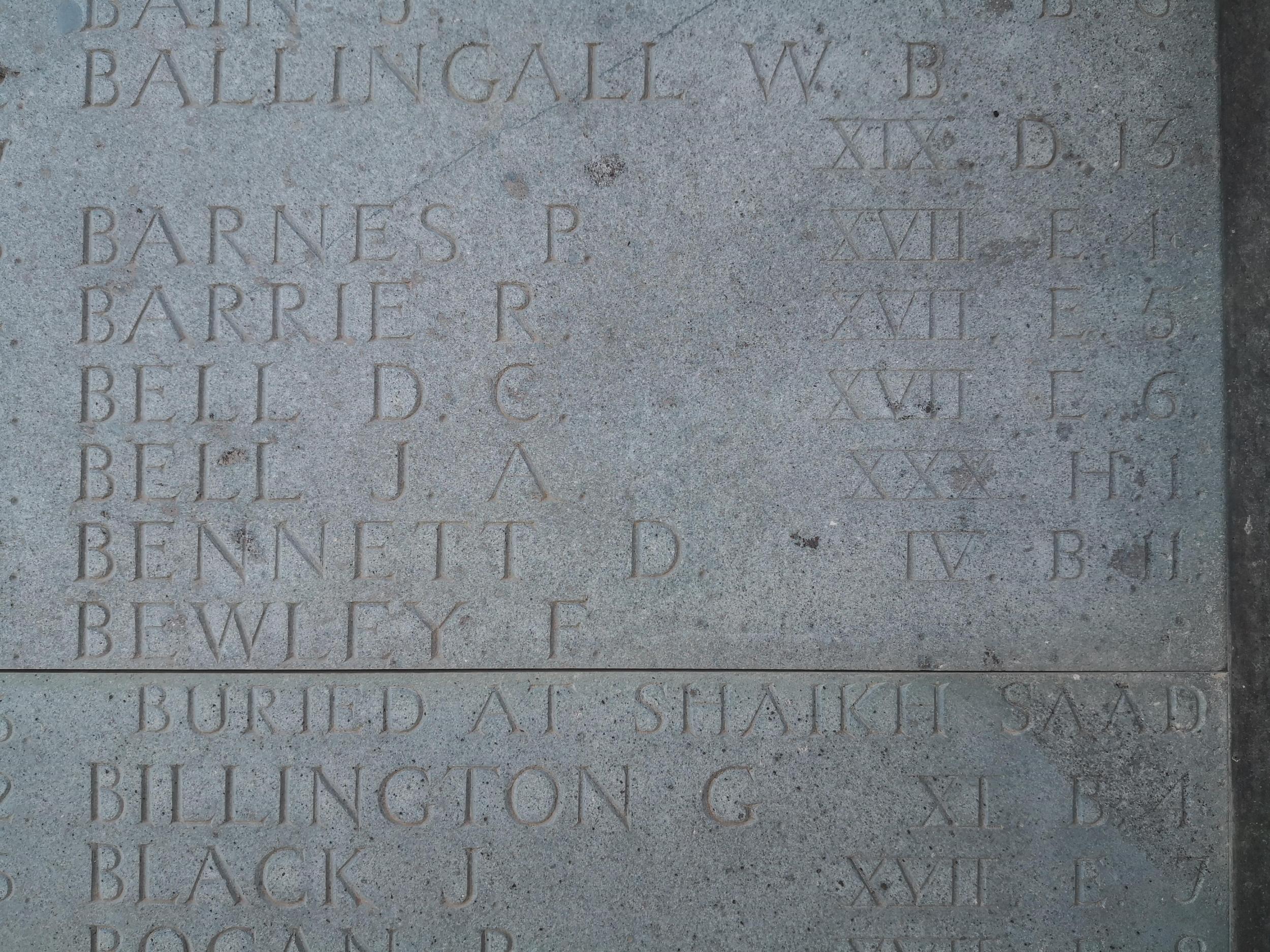On the banks of the Tigris, the lost grave of Scottish shepherd David Bell takes us deep into Iraq’s bloody past
A barren war cemetery in Amara houses the dead from the allies’ most calamitous defeat in the First World War. It was a request from a canny grandmother in Lincolnshire that took me there


Your support helps us to tell the story
From reproductive rights to climate change to Big Tech, The Independent is on the ground when the story is developing. Whether it's investigating the financials of Elon Musk's pro-Trump PAC or producing our latest documentary, 'The A Word', which shines a light on the American women fighting for reproductive rights, we know how important it is to parse out the facts from the messaging.
At such a critical moment in US history, we need reporters on the ground. Your donation allows us to keep sending journalists to speak to both sides of the story.
The Independent is trusted by Americans across the entire political spectrum. And unlike many other quality news outlets, we choose not to lock Americans out of our reporting and analysis with paywalls. We believe quality journalism should be available to everyone, paid for by those who can afford it.
Your support makes all the difference.This is the story of an elderly lady in Lincolnshire, a long-dead Scottish shepherd and a kindly Shia Muslim in southern Iraq. First, the lady. Moira Jennings, who is now 87, wrote to me from her home in England when I was covering the aftermath of the disastrous – and illegal – 2003 Anglo-American invasion of Iraq. We would exchange letters several times in the coming years. But her words are more eloquent than mine:
“My Grandfather was killed on 22nd April 1916 and is buried in Amara War Cemetery, Iraq. He was in the Black Watch, left the farm in Scotland where he was a Shepherd and never returned, as did so many men in the First World War. As a child I spent a lot of time with my Grandmother who had my Grandfather’s medals in a frame on her wall. I asked her about them and she told me he had been killed in Mesopotamia by the Turks. To a child this made a lasting impression on my mind and I’ve tried to find out more.”
Private David Cameron Bell of the 2nd Battalion, the Black Watch (Royal Highlanders), came from Fife – his parents were called Henry and Catherine, that much we know – and his wife, Moira’s grandmother, was called Annie (originally Annie Anderson). She was from Frithfield, Anstruther, which is also in Fife.
Moira Jennings, a canny lady whose articulate fury at the Bush-Blair invasion matched her horror at the bloodshed of the Great War which ended 14 years before she was born, knows the story of what was “Mesopotamia” all too well. When he was killed, Private Bell was already 41 – a truly “old soldier” by the standards of the Great War in which my own father fought in France (and survived) at the age of just 19.
In a series of military actions, the British – including thousands of Indian troops – fought their way up the Tigris river towards Baghdad in 1915, but were finally surrounded by the Ottoman Turks on a plateau of land between Kut and Amara under their self-satisfied but ineffectual general, Charles Townshend.
Despite efforts by Lawrence of Arabia and others to bribe the Turks to release the British army, the trapped soldiers were reduced, under constant shellfire, to eating horses, and even rats to survive. In the reduced front line, cholera broke out. There were desertions, and when Townshend finally surrendered on 29 April 1916 around 4,000 British dead were packed into the Amara cemetery beside the fetid waters of the Tigris. It has rightly been called the worst defeat of the allies in the First World War.
This deeply depressing tale of military collapse was only compounded when the Turks forced the British survivors to undertake a death march up through what is now Iraq, through Mosul, into eastern Turkey and Anatolia, where they died – again by the thousand – of cholera and overwork, often close by the dying “survivors” of the 1915 Armenian genocide.
General Townshend, however, was taken up the Tigris by boat, treated with princely courtesy in Constantinople and – speaking little of his own troops – returned to Britain expecting to be treated as a war hero. Like so many of his kind, he later became an MP and an “expert” on the Arab world.
But here is Moira Jennings, writing to me now in 2012. “…I know my Grandfather ‘fell’ and his mate bent down and took his wallet to bring home to my Grandmother, so he didn’t die of Cholera. I heard all this from my Gran and its [sic] stayed with me all these years. My Gran was very bitter towards the Turks, understandably. I feel sad that my Grandfather was killed and didn’t come back to his family as my Gran’s life was very hard with five children to feed and having to leave the farm. She remarried, out of necessity, to feed her children.”
Could I, Moira Jennings asked, locate her grandfather’s grave? She sent me a detailed map of the great cemetery at Amara, showing that Private David Bell, service number S/7283, lay in LOT XVII. E. 6. The old Commonwealth War Graves Commission map she sent me should – in theory – have helped locate her grandfather’s grave. But I’d been to British war graves in Basra 15 years ago, and that cemetery had long ago been desecrated during Iraq’s civil war.
The War Graves Commission could not guard these cemeteries amid the dangers of kidnap or murder. Yet last month, on a trip to Baghdad and the Shia Muslim cities of southern Iraq, I suddenly realised I could at last honour a promise to Moira Jennings.
By extraordinary chance, I set off south from Kerbala on 22 April – the very day on which Private David Bell met his end at Amara. The road was straight and hot and the Tigris, beside which Bell was killed, was flooded. I feared the cemetery itself – or what was left of it – might be in the same state. But it didn’t take long to find, next to a gruesome new children’s “funfair”, a slew of gas stations and a massive builder’s dump.

The outer wall of the British cemetery was of 1920s brick and there was a small gatehouse – much dilapidated and secured with barbed wire – which I could find on the map that Moira Jennings sent me.
In theory, of course, this should have been a well-tended if deserted cemetery dedicated to those whose names – as every British cemetery tells us – “liveth for evermore”. But the gatehouse was empty, the drivers of the huge construction dump trucks indifferent. Yet one cheerfully told me that the man who lived in the little brick house – Hassan Houteif Mawsa – was at prayers in the local mosque and would soon be home. I padded round the graveyard perimeter in the hot sun.
My Iraqi fixer and driver were my protectors on this trip and they began to catch my enthusiasm. “Who was Mr David?” they asked. He was a shepherd, I said, who had five children, and he died right here in Amara. The faces of both men lightened. Private David Bell suddenly became real for them. A farming man – like many of the people of Amara – with a large family, like so many Iraqi families. For them, he belonged in Iraq. For me, Fife did not seem quite so far away.
And then, smiling broadly, there was Hassan himself, shaking hands, taking the padlock off the barbed-wire covered gate, inviting us to take fruit off the trees inside and bringing from his house a huge map. It was not a copy but an original British war office map – officially checked by “J Coleman” on 21 April 1922 – of the cemetery. And in those days, it was clear, each grave had a marker, a headstone, cut grass. No longer.

The dismal state of the Amara war cemetery is known, but perhaps too easily forgotten. Hassan’s schoolchild’s exercise book – which doubles as his personal visitor’s book to the cemetery – shows that British Commonwealth War Graves officials visited the site in 2015, and Trevor Lewis, a British embassy official in Baghdad, came on 18 May 2016. A colleague, Martin Fletcher, has also visited. So did many British soldiers who were part of the invasion and occupation force in and after 2003.
Hassan and I walked across the rough grass of the Amara cemetery, past the site of the great cross which now lies in concrete pieces – a vandalisation that can scarcely be repaired when Shia militias still exist across the south. The individual gravestones – for Private Bell did originally have his name here – were taken down in the 1930s when chemical erosion began to damage the stones.
Only two survive, neither of them Bell’s. But it was just possible to make out the original concrete lot marker to graves at XVII, and Hassan and I “walked out” the distance to “E 6”, until we were standing over whatever remained of poor Private Bell.
I had Moira Jennings’ letter in my file with me, so I picked some grass with purple tops from her grandfather’s resting place and put them in a plastic folder.
It was then that my driver shouted across to me. He was standing at a far wall of the cemetery, upon which the names of many of the dead were still visible. Hassan had told me how hard it was to preserve even this wall from vandals. Only a month ago, thieves had come into the cemetery at night and torn the brass fittings from the slabs, some of which – I noticed the Staffordshire Regiment, 1915 – had fallen into the grass.
My driver had found the slab for the Black Watch. And there it was: “Private D C Bell XVII E 6”. So even here – even today – the name of Moira’s grandad survives.

As for Hassan, he complained that he had not been paid since 1991, that his father was salaried as keeper before him but that he now worked for nothing, with no salary, to protect these graves.
This was sad, true, but not quite all the story.
Saddam’s Iraqi government told the War Graves Commission in 1992 that they should no longer employ their 22 staff in Iraq. The commission paid them generous indemnities and allowed all to continue to live in their cemetery buildings rent free. Which is why Hassan lives – for nothing – in his little house today. But he made one other, deeply moving remark.
“Some years ago,” he told me, “my neighbours and friends and people who knew I worked here told me it was forbidden to look after these foreign [Christian] graves. They said this over and over to me. I became very worried, so I went to see an ayatollah and explained the situation and sought his advice. And he said: ‘My son, you must continue to respect the dead – and look after them for their families who may one day come here’.”
And so the blessing of a Shia divine lies upon the 4,000 dead of Amara, along with Private Bell. I called Moira Jennings from Kerbala to tell her I had found her grandfather’s name on the wall and located the exact location of his remains. Who knows what these now are? But his bones – or what is left of them – are mixed in this earth, not far from his name. And this week, back from Iraq, I posted the small pile of grass from his grave to Moira’s address in Lincolnshire, where she lives in the ancient village of North Hykeham, far from Fife, and many thousands of miles from Amara. Or perhaps not that far.
Join our commenting forum
Join thought-provoking conversations, follow other Independent readers and see their replies
Comments